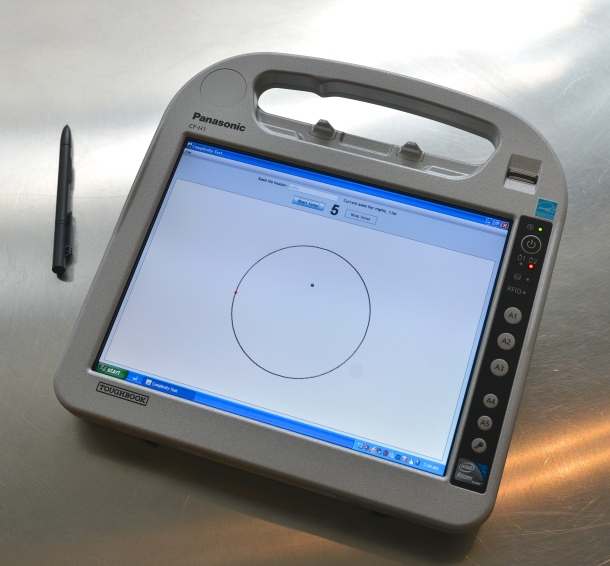It is not a secret that the standard hand-eye coordination tests doctors use to monitor neuromuscular deficits - usually when a patient is injured or the age of the patient - can be subjective, based on, for example, descriptions of reflexes and cognitive status as "mild," "moderate" and "severe."
Thus, researchers of the Wyss Institute for Biologically Inspired Engineering at Harvard, Beth Israel Medical Center, Hebrew SeniorLife have developed what they call a fast neuroassessment device, nicknamed NeuroAssess to measure the quantitative performance neuromuscular rather than quality of.
They recently tested 150 healthy people aged 21 to 95 in the Boston area and report in the Journal of Gerontology this week that their tablet tool can assign a real number to describe the difference in performance between individuals and conditions.
"This new tool may have a great potential to increase existing protocols in toolbox doctor neuromotor assessment," Wyss Senior Staff Engineer Leia Stirling, who led the study, said in a news release. "It is portable repeatable, quick to administer and easy to make. "
In the study, participants used a stylus on a tablet to perform a basic task of screening, follow a moving target around a circle. Wyss developed methods to measure computer owners, even subtle deviations from the circle, observing that help skills such as "fluid movement" (how long the user pauses) and "complexity" (in how the person adapts to changes).
The application analyzes the data taking into account the participant's age, sex and impartiality, and then assigns a number.
Now that they have collected data from healthy subjects, the team will study how well NeuroAssess can thus evaluate people with known neuromuscular diseases, concussions in multiple sclerosis. The team is already working with athletes in Boston to assess its ability to diagnose concussions.Stirling said you can possibly see tools like NeuroAssess outside playgrounds in war zones, and adjacent thermometers and sphygmomanometers in doctors' offices: "Just like your blood pressure is recorded at each visit, this could be your score neuromuscular monitoring over time to determine progress through recovery and rehabilitation."
Browse » Home




